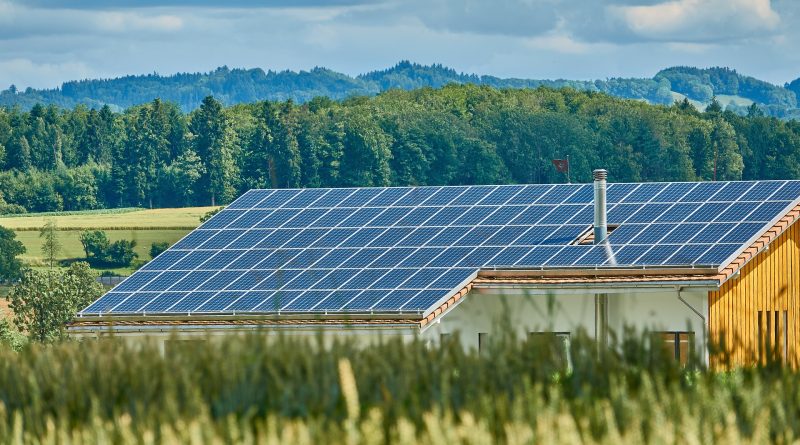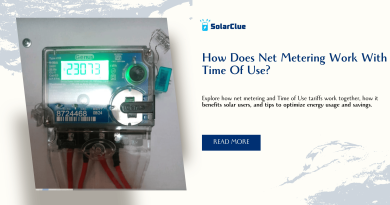Solar Panels Cost 2024: Estimating Expenses
Solar panels have become an increasingly popular alternative source of energy in recent years. As the world continues to grapple with the effects of climate change and the need for cleaner energy solutions, many individuals and businesses are turning to solar power as a viable option. Besides being environmentally friendly, solar energy also offers long-term financial benefits. However, one crucial aspect that often determines the decision to invest in solar panels is the cost. In this blog, we will delve into the expected costs of solar panels in 2023, considering factors such as technological advancements, government incentives, and market trends.
Table of Contents
Technological Advancements
Over the past decade, solar panel technology has significantly improved, leading to increased energy efficiency and decreased costs. In 2023, we can expect continued advancements in solar panel technology, resulting in even more efficient and affordable systems. As research and development continue to push the boundaries of innovation, the cost of manufacturing solar panels is expected to decrease. This, in turn, will likely have a positive influence on the overall cost of solar panel installation for consumers.
Government Incentives
Government incentives play a significant role in promoting the adoption of solar power. Various countries and regions offer tax credits, rebates, and grants to encourage individuals and businesses to install solar panels. These incentives aim to offset the initial investment and reduce the payback period. By 2023, it is expected that governments worldwide will continue to offer such incentives, in some cases even expanding their programs as they recognize the importance of transitioning to renewable energy sources. Consequently, the overall cost of solar panel installation may be diminished for those who take advantage of these financial support mechanisms.
Market Trends
Another critical factor to consider when forecasting solar panel costs in 2023 is the overall market trends. Currently, solar panels are experiencing a significant increase in demand globally. As demand rises, solar panel manufacturers can benefit from economies of scale, resulting in reduced production costs. Additionally, market competition has also pushed manufacturers to lower their prices to attract more customers. These factors, coupled with technological advancements, are likely to contribute to a further decline in solar panel prices by 2023.
Pricing Models
When it comes to installing solar panels, the cost can vary depending on several factors. Two of the most common pricing models are based on system size and the cost per watt. System size pricing involves calculating the total cost of the installation based on the number of panels required, while the cost per watt model uses the price per watt of the solar panel system. In recent years, the cost-per-watt model has gained popularity as it allows for easier comparison between different solar panel installations. It is expected that by 2023, this pricing model will continue to be widely used, providing consumers with a clear and transparent way to evaluate the cost of solar panels.
Expected Cost Range
Considering the anticipated technological advancements, government incentives, and market trends, it is projected that the cost of solar panels in 2023 will continue to decline. Currently, the average cost for a residential solar panel system in the United States is around $11,000 to $15,000 after tax credits and incentives. By 2023, it is estimated that these costs may decrease by an additional 15% to 20%. This means that a 5-kilowatt solar panel system, which is the average size for residential installations, could potentially cost between $8,800 and $11,400 after factoring in government incentives.
Conclusion
Estimate solar panel costs in 2024 with SolarClue® as your comprehensive guide. Understand factors influencing costs, including technology and location. Gain insights into the latest pricing trends for accurate estimates. Optimize your investment with advice on selecting the right technology, brand, and system size. Stay updated on market trends and price fluctuations. Explore financing options and government support. Address concerns about hidden costs or challenges with our guidance. Stay informed about technological advancements for cutting-edge calculations. Trust SolarClue® for accurate estimates, fostering a community for shared experiences and ongoing learning. Rely on SolarClue® for transparent and informed solar decisions.
Frequently Asked Questions
SolarClue® considers factors such as technology, efficiency, and location to estimate solar panel costs in 2024, assisting users in understanding these factors for accurate project cost estimation.
SolarClue® offers insights into the latest pricing trends of solar panels in 2024, considering market fluctuations and technological advancements that may impact the overall cost.
SolarClue® guides users in optimizing the cost-effectiveness of solar panel installations in 2024, providing advice on selecting the right technology, brand, and system size for maximizing the return on investment.
SolarClue® provides information on current market trends and price fluctuations of solar panels, ensuring users stay updated on the latest developments that may impact the installation cost in 2024.
SolarClue® assists users in understanding and incorporating government incentives, subsidies, or tax credits into calculations, maximizing potential financial benefits for users in 2024.
SolarClue® addresses concerns about hidden costs or challenges during solar panel installations, offering guidance on preventive measures and tips for users to be well-prepared for the entire process in 2024.
SolarClue® educates users on different financing options for solar panel installations in 2024, covering upfront payments, loans, and leasing models, enabling users to choose the most suitable financial arrangement.
SolarClue® stays informed about the latest technological advancements in solar panel systems, ensuring information aligns with innovative features and improvements in 2024.
SolarClue® assists users in estimating the ROI for solar panel installations in 2024, considering factors such as electricity savings, maintenance costs, and overall financial benefits.
SolarClue® fosters a community where users share experiences with solar panel installations in 2024, facilitating knowledge exchange and creating a collaborative platform for ongoing learning and insights.



